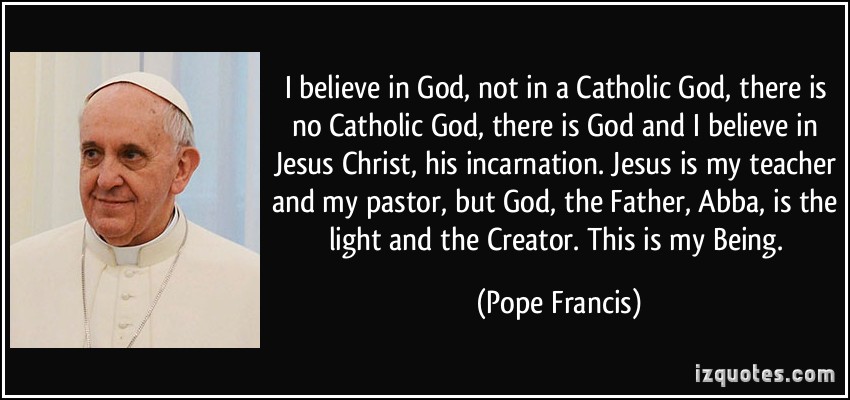Covenant theology is not an easy topic to put into a single post. The New Covenant came to fruition with a series of covenants. They are all connected, with the final covenant with Calvary. One does not cancel the other, there is no opposition. Try to think in Hebraic terms of "both/and", not "either/or".Sorry, I thought you meant the New Covenant started with Mary; I didn't realize you were talking about outward sacraments. I was just correcting when the actual New Covenant started.
“God as father is the essential foundation of our Catholic faith. Ever since the Protestant reformation, the covenant has been understood in the terms of a courtroom, God as judge, sinners as guilty defendants who were acquitted by Jesus Christ’s redeeming word. Now all that is true but I would suggest it has to be subordinated to a higher principle, that the covenant is a sacred family bond with God as the father. And a father requires more of a family member than a judge does of a defendant.
So we think of the covenant as a sacred family bond that binds God the father to us as his family. Sure God is a judge, because he’s a father so all of his judgments are fatherly. How do the covenants help us understand the Bible?
Think of this timeline, put Adam at one end and Jesus on the cross at the other end representing the OT culminating in the coming of Jesus Christ.
The first covenant God made was the Covenant with Adam.
The second covenant he made was the covenant with Noah.
The third was with Abraham.
The fourth was made through Moses to Israel at Mt Sinai.
The fifth covenant God makes is with David establishing this divine kingdom of Israel.
And the last covenant is the new covenant that Jesus comes to inaugurate.
If you think of covenants in family terms you can see why God punctuates history with these covenants.
The first covenant he made with Adam was a marital covenant, the family form of the covenant.
The covenant with Noah was a household covenant between God, Noah, his wife, their three sons and their wives encompassing a household.
The third covenant with Abraham was a tribal covenant. Abraham was addressed as a Chieftan with authority over many.
The covenant God made with Moses wasn’t with just one tribe but with twelve tribes. The twelve tribes became the national covenant.
The fifth covenant was the kingdom covenant with David, a national kingdom covenant that begins to do a new thing with the people of Israel and starts to include all the gentiles and nations.
And the last covenant was one Jesus established with his body and blood, an international covenant. For the first time, God has expanded his family to be a worldwide family. (The word for that in Greek is katholikos, a term for "whole world" in Romans 1:8)
The point I was clumsily trying to make with Mary is that Jesus didn't come to earth on a cross, it 'started' with an angel delivering the words of God to Mary. Her answer is Luke 1:38. Incarnation...Calvary. "both/and", not "either/or".
So pitting "LAW" against "SPIRIT" doesn't make sense because they are not covenants. They are words to help us understand what the Bible is for.
It depends. If I commit a serious sin and break my family bond with the Father, (spiritual death) then I must go to confession to have it restored, or it would be a sin to receive the Eucharist. Minor sins of thought, word, or deed don't cause death, but could if not checked. (James 5) Our culture trains people to think Confession is a torture chamber. It's not. It's like a shower for the soul, a beautiful sacrament that nurtures and strengthens our personal relationship with Jesus. Even the Pope goes to confession, I read somewhere he goes once a week.Let me ask you a question. Can you partake of the Eucharist if you have willful sin in your life, or must you first go to confession?

Last edited:

